4 Everyday Items You Can Reuse That Actually Last

Written by: Brielle Murch
The disposable mindset and lifestyle that has dominated our society is detrimental to the health of our planet in a multitude of ways, with the number one disposable material used in the world being plastic.
Most plastics are derived from nonrenewable resources such as coal, natural gas, and crude oil. These are all fossil fuels that when harvested, add to the greenhouse gas emissions going into the atmosphere as well as the destruction of land.
Plastics can also be made from more natural, organic materials such as cellulose, but even then require intensely high amounts of energy to create and actually degrade.
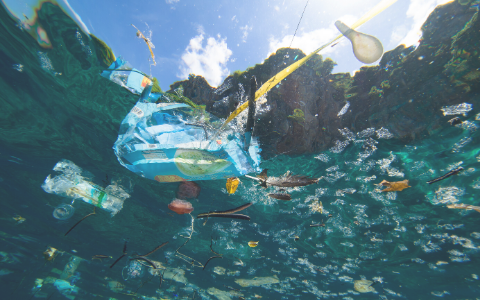
The majority of plastics are non-biodegradable. But what does non-biodegradable mean exactly? It describes polymers that do not break down to a natural, environmentally safe condition over time by biological processes. As a result, they become a material called microplastics, extremely small pieces of plastic debris in the environment.
An estimated 14 billion pounds of trash, much of it plastic, is dumped in the world's oceans every year.
So let’s collectively do our best to avoid consuming plastic, and start switching over to reusable items that will also save you money in the long term!
Reusable bags are a no brainer; they are definitely the first step to reducing plastic waste since plastic grocery bags are extremely hard to recycle and take 1,000 years or more to decompose into microplastics.
I wanted to dive a bit deeper into items that may not have been so obvious, so let’s learn about 4 everyday reusable items you can use in your daily life that actually last!
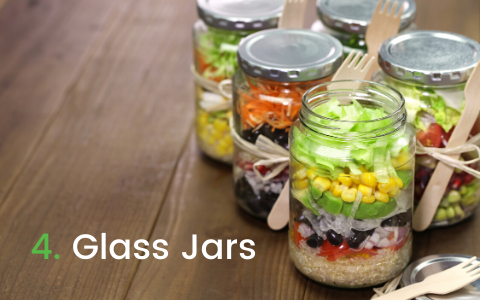
Glass is created from minerals of the earth, specifically Silica, otherwise known as Quartz Sand. It is durable, brittle, and will last a lifetime.
It is super simple & cost-effective to collect glass jars from products we already consume. Items that come in glass jars that I love to collect include organic pasta sauce jars, Kombucha bottles, and nut butter jars.
Glass is very easy to clean & store and is not susceptible to bacteria or mold growth. It also does not leach chemicals into products stored within it like plastic does.
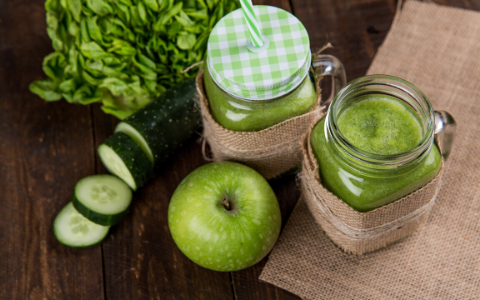
You can save jars and bring them into stores with bulk sections to refill them with items such as nuts, grains, flours and legumes.
Other ways to "upcycle" and reuse jars are to store food and drinks that you create or buy at a restaurant/cafe. For example, if you order a giant salad while out to eat but only eat half, you can put the rest in your glass jars rather than taking a to-go container.
I also have used glass jars to buy drinks such as juices, smoothies, or on-tap kombucha. With the COVID-19 pandemic, this may be less of an option right now due to bulk sections being closed off and precautions being taken, but either way, you can find ways to reuse glass jars in your everyday life.
You can use a kombucha bottle as a mini flower vase, a nut butter jar to store coins or paper clips, a wine jar for upcycled art, or just drinking homemade lemonade out of a jar you saved!
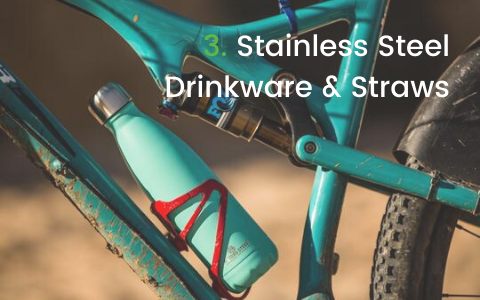
Stainless Steel is an alloy of Iron, and contains other minerals such as Chromium. Chromium is what helps to protect against rusting and is nontoxic to the body.
Stainless steel also lasts a lifetime and does not leach any chemicals if heated. I love drinking my water out of my Greens Steel Stainless Steel Water Bottle, because I know it is safe to drink from and my drink will also be kept at an optimal temperature.
Stainless steel is also almost impossible to break; I have had mine for years now! Being a mother always trying to juggle 5 things at once, I drop it a lot on the floor, and have even left it on the hood of my car while driving, and it has never broken!
I always keep my water bottle on me alongside my Greens Steel Stainless Steel Straw. These straws are extremely sanitary and very easy to clean.
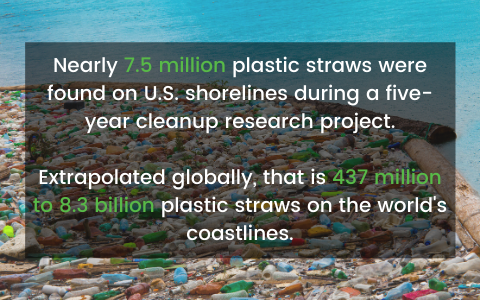
Use one stainless steel straw for your entire lifetime, and you can help clean up the source of all life, the ocean!
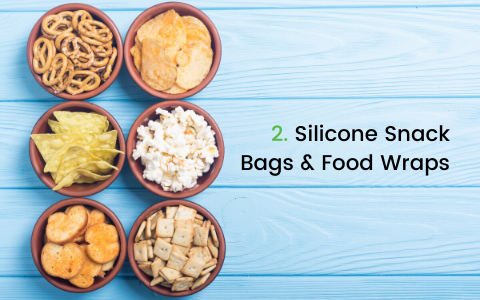
Silicones—or siloxanes, as they are also known—are something of a hybrid between synthetic rubbers and synthetic plastic polymers. Although there are plastic derivatives added to Silicone, it mostly consists of inert silicone (sand) and oxygen.
Silicone is a much better alternative to plastic, especially when related to food storage. It resists the degradation of the sun and sea, so it does not leak chemicals into our food. It is also oven safe, dishwasher friendly, and extremely durable, lasting decades in good condition.
Plastic bags and other plastic garbage thrown into the ocean kill as many as 1 million sea creatures every year.

Good thing you can replace plastic wrap with silicone wrap! Silicone stretch lids are used for food storage & flexibility. They are able to wrap over most containers, bowls, cups, and jars to protect the food you are saving!
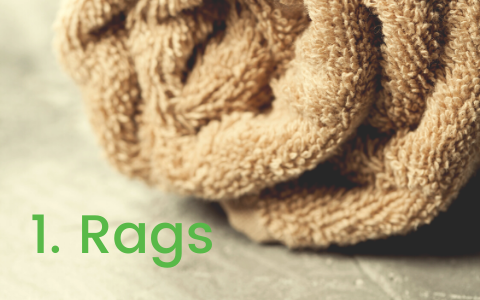
Disposable plastic waste is definitely the top priority to reduce since it is the most harmful to our planet, but paper waste is also extremely detrimental due to the over-harvesting of trees. We need trees in the ground to sequester carbon into the soil from the atmosphere.
To create mainstream paper towels, virgin trees are killed, fossil fuels are used within harvest and transport, and a high amount of water and chemicals are used to process the tree into paper.
A simple solution to reducing single-use paper is to re-use rags. They can come from old t-shirts, ripped towels, or even bandanas!
I have a drawer in my kitchen filled with rags I've collected, most of them being from family members asking me what I want or need, and me saying, “Rags! Any rag like items you have!”.
![]()
Seeing marine life washing upon the ocean shore from consuming plastic waste is tragic and heartbreaking. The oceans are piling up with our waste, as it is estimated that by 2050 there may be more plastic in the ocean than fish.
We can not allow that to happen, for our quality of life, our families, and the future generations! There may be some investment at first to purchase these higher-quality products and materials, but in the long-term, it is cost-effective seeing as they last a lifetime.
Do your research, save your jars, grab a Stainless Steel Water Bottle, bring your reusable bag, and share this article with a friend! Every one step you take to do better is powerful and impactful; always remember that.
Much love and Namaste,

Brielle Murch | Everything Earth Tribe




Leave a comment